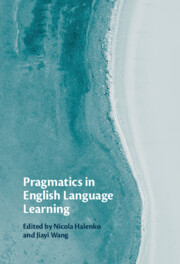Part I - Pragmatics in Action
Published online by Cambridge University Press: 29 September 2022
Summary

- Type
- Chapter
- Information
- Pragmatics in English Language Learning , pp. 27 - 140Publisher: Cambridge University PressPrint publication year: 2022

